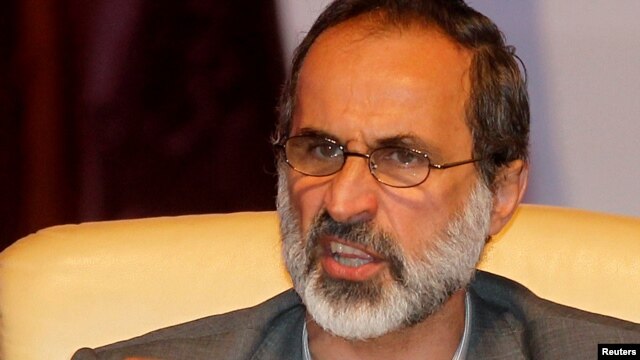 Syrian opposition leader Moise Khatib expressed his willingness to negotiate with the Deputy President Bashar al-Assad.
Syrian opposition leader Moise Khatib expressed his willingness to negotiate with the Deputy President Bashar al-Assad.In an interview with the Arab TV channels on Monday Khatib said he holds out his hand, Vice-President Farouk al-Shara of Syria for talks on "peaceful departure of the Assad regime."
The leader of the Syrian National Coalition first announced its readiness for peace talks with the government last week, but made it a condition
of their release of thousands of prisoners and the granting of passports Syrians, who were forced to flee the country because of the uprising against Assad's authoritarian rule.
This proposal has caused anger among some members of the opposition coalition, who had previously stated that the negotiations could begin only after the departure of Assad.
In a recent interview, Khatib explained his willingness to dialogue with the Assad government that only the Syrians can find a solution to the civil war that engulfed the country. The international community is divided over how to respond to conflict: while the Western countries and their Arab allies are maintenance-Assad, the Syrian president advocates such as Iran and Russia, insist that no foreign state can not impose its scenario Syria future.
Khatib said that after the ball is at his proposals on the government side of the field. Assad's reaction to the initiative of the leader of the opposition is not yet known, but previously he offered his own plan of national reconciliation, providing for elections and a new constitution, while maintaining its power.
U.S. State Department spokesman Victoria Nuland said that if Assad is interested in peace, it must "immediately sit down and negotiate" with the opposition coalition.
Meanwhile, human rights activists reported that government troops on Monday caused air and artillery strikes on rebel-controlled areas in the vicinity of Damascus, including the Duma.
UN Children's Fund (UNICEF) announced the start of a project to provide clean water, 10 million Syrians - almost half the population. On Sunday, the first four trucks with 80 tons of water chlorination crossed the Syrian-Jordanian border and headed to Homs, Aleppo, Hama and Idlib.
No comments:
Post a Comment